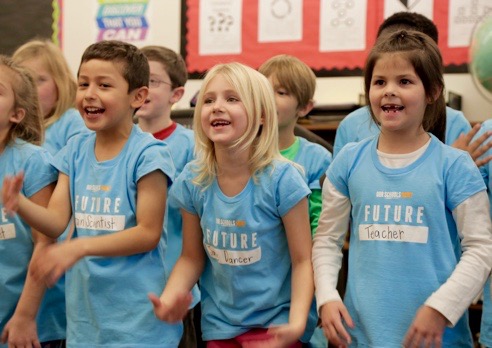Early Education
Children who are ready for kindergarten are more likely to have academic success, attain higher levels of education, and secure jobs.
On average, by age three, children know 1,100 words, yet low-income children know only 500 words–creating a learning and achievement gap early in a child’s life.
Over time, that gap increases, setting low-income children further and further behind their peers. Success in a child’s early years increases the likelihood of success throughout life.
Research shows that for students from low income families, entering kindergarten ready to learn can improve their odds of increasing their future financial stability enough to reach the middle class as an adult. Focusing on a child’s early years of education is the most cost-effective and impactful work we can do to break the cycle of poverty for about 51,000 low-income children along the Wasatch Front.
With your help, we can reach more children at risk for academic failure with our preschool programs and expand resources at schools so these students are ready to learn. We can continue advocating for more preschool education opportunities for children of all income levels, expand our current pre-K efforts, and analyze current data to weigh what more needs to be done to prepare children for school.
Thanks to current efforts in Granite School District, data analysis shows that nearly 70 percent of zero to five-year-olds in schools UWSL works with are developmentally on track. But there is still more to do.

